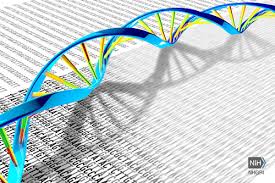
In what is being described as the most ambitious project in the history of biology, an international consortium of scientists wants to sequencing the DNA of all known eukaryotic species on Earth.
A council with members from the United States, the European Union, China, Brazil, Canada, Australia and some African countries leads the initiative which was explained on Monday in the Proceedings of the National Academy of Sciences.
Creating a new and vital; resource for global innovations in medicine, agriculture, conservation, technology and genomics and potentially result in a total transformation of the scientific understanding about life on Earth would be the primary benefits of the herculean project.
The proposed project has been termed as the Earth BioGenome Project (EBP). By a process of sequencing and functionally annotating the genomes of 1.5 million known species of eukaryotes, the project aims to obtain an understanding of evolution and organization of life on Earth. Eukaryotes is a very large biological group that includes plants, animals, fungi and other organisms that have a cell with a nucleus which contains their DNA.
According to 24 interdisciplinary authors, sequencing of genomes have been done for fewer than 0.2 percent or less than 15,000 species of eukaryotic type.
Another aim of the project is to identify at least a large portion of the unknown species of eukaryotes which is estimated to be anywhere between 10 to 15 million. And most of those unknown species are essentially single cell organisms, insects and small animals that are found in the oceans.
It will cost about 4.7 billion U.S. dollars and more than 10 years to complete the project according to the estimates of researchers.
This proposed project is being equated with the Human Genome Project which had been hugely successful. An estimated return-on-investment ratio of 141-to-one was generated from that project which cost about 4.8 billion in today's dollars.
"The Earth BioGenome Project will give us insight into the history and diversity of life and help us better understand how to conserve it," said Gene Robinson, director of the Carl R. Woese Institute for Genomic Biology at the University of Illinois who chairs the project.
The project has become feasible because of advances in technology. About 1,000 dollars is the present cost for a draft-quality sequence of human genome size while a reference-quality assembly of the chromosomes of an average eukaryotic genome would cost around 30, 000 dollars which means that there has been a decline in the whole genome sequencing process.
With advances in high-performance computing, data storage and bioinformatics, the high throughput assembly and characterization of genomes is now feasible, according to the researchers.
Development of new drugs for infectious and inherited diseases and the creation of new biological synthetic fuels, biomaterials, and food sources to cater to the demands of a growing human population are the other essential benefits of the project according to researchers. .
(Source:www.xinhuanet.com)
A council with members from the United States, the European Union, China, Brazil, Canada, Australia and some African countries leads the initiative which was explained on Monday in the Proceedings of the National Academy of Sciences.
Creating a new and vital; resource for global innovations in medicine, agriculture, conservation, technology and genomics and potentially result in a total transformation of the scientific understanding about life on Earth would be the primary benefits of the herculean project.
The proposed project has been termed as the Earth BioGenome Project (EBP). By a process of sequencing and functionally annotating the genomes of 1.5 million known species of eukaryotes, the project aims to obtain an understanding of evolution and organization of life on Earth. Eukaryotes is a very large biological group that includes plants, animals, fungi and other organisms that have a cell with a nucleus which contains their DNA.
According to 24 interdisciplinary authors, sequencing of genomes have been done for fewer than 0.2 percent or less than 15,000 species of eukaryotic type.
Another aim of the project is to identify at least a large portion of the unknown species of eukaryotes which is estimated to be anywhere between 10 to 15 million. And most of those unknown species are essentially single cell organisms, insects and small animals that are found in the oceans.
It will cost about 4.7 billion U.S. dollars and more than 10 years to complete the project according to the estimates of researchers.
This proposed project is being equated with the Human Genome Project which had been hugely successful. An estimated return-on-investment ratio of 141-to-one was generated from that project which cost about 4.8 billion in today's dollars.
"The Earth BioGenome Project will give us insight into the history and diversity of life and help us better understand how to conserve it," said Gene Robinson, director of the Carl R. Woese Institute for Genomic Biology at the University of Illinois who chairs the project.
The project has become feasible because of advances in technology. About 1,000 dollars is the present cost for a draft-quality sequence of human genome size while a reference-quality assembly of the chromosomes of an average eukaryotic genome would cost around 30, 000 dollars which means that there has been a decline in the whole genome sequencing process.
With advances in high-performance computing, data storage and bioinformatics, the high throughput assembly and characterization of genomes is now feasible, according to the researchers.
Development of new drugs for infectious and inherited diseases and the creation of new biological synthetic fuels, biomaterials, and food sources to cater to the demands of a growing human population are the other essential benefits of the project according to researchers. .
(Source:www.xinhuanet.com)





